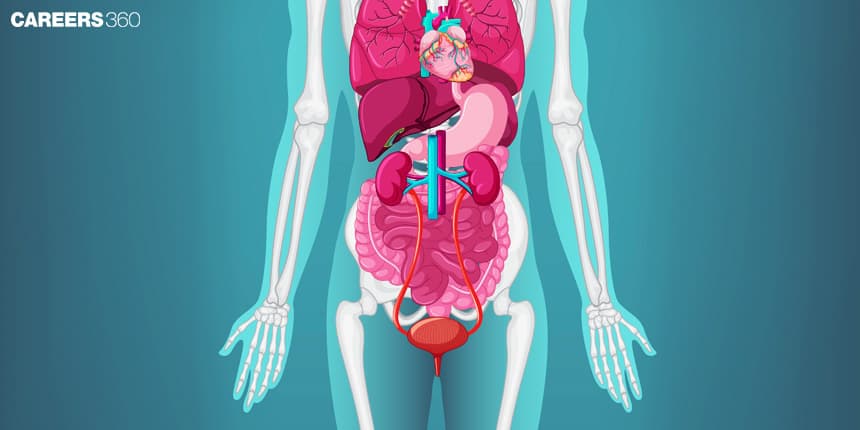Excretion Definition: Systems, Examples, Importance & Facts
Excretion is the biological process by which organisms remove metabolic waste products and toxins from the body to maintain homeostasis. In humans, the excretory system includes organs like the kidneys, lungs, skin, and liver, each playing a role in eliminating substances like urea, carbon dioxide, and excess salts. This process is vital for regulating the body's internal environment and ensuring optimal cellular function. In this article, the definition of excretion, and excretory systems of various organisms are discussed. Excretion is a topic of the chapter Excretory Products and their Elimination in Biology.
NEET 2025: Mock Test Series | Syllabus | High Scoring Topics | PYQs
NEET Important PYQ's Subject wise: Physics | Chemistry | Biology
New: Meet Careers360 B.Tech/NEET Experts in your City | Book your Seat now

Definition of Excretion
Excretion is a process by which organisms eliminate from their bodies waste products of several chemical reactions that take place in cells, especially through the breakdown of nutrients to liberate energy. If such waste materials are not removed, they might accumulate within the organism and prove to be toxic to the very organism. Other wastes include carbon dioxide, water, ammonia, and salts which are expelled in varying methods by different organisms and different forms of waste.
Different organisms have evolved specialized organs or structures that facilitate excretion. For example, in humans and most animals, the kidneys filter out waste from the blood and produce urine, which is then excreted from the body; in plants, excess water and oxygen are excreted out through small pores in the leaves known as stomata. In simpler organisms, such as bacteria and amoebas, waste simply diffuses out of cells. This helps maintain balance in the body by maintaining the internal environment stable enough so that cells can function.
Excretion plays an important role in maintaining the chemical balance of the body by ridding it of substances which could be harmful if allowed to accumulate and thus disrupt normal physiological functions. It also plays a role in the regulation of water and electrolyte balance, which is very important for several cellular processes.
Also Read:
- MCQ Practice on Human Excretory System
- Excretory Products and their Elimination
- Concept: Human Excretory System
- Locomotion and Movement
Excretory Systems of Various Organisms
Excretory systems vary among organisms according to their needs and environments.
Single-celled Animal
Diffusion: Waste products are directly diffused across the cell membrane.
Invertebrates
Protozoa: Excess water with waste products is expelled by contractile vacuoles.
Annelids: Nephridia filters wastes from the fluid of its body.
Arthropods: Excrete waste and maintain osmotic balance through Malpighian tubules.
Vertebrates
Fish: Gills are the major excretory organs, eliminating ammonia directly into the water.
Amphibians: Kidneys and skin are excretory organs.
Reptiles: Kidneys excrete uric acid, which minimizes water loss.
Birds: Kidneys and cloaca excrete uric acid.
Mammals: Kidneys filter blood, and urine is produced.
Also Read:
Recommended Video on Excretion Definition
Frequently Asked Questions (FAQs)
Excretion refers to the removal of metabolic waste from the body. It is essential to prevent the accumulation of substances which are either poisons or behave like poisons to maintain homeostasis.
Kidneys filter blood through nephrons. Waste gets separated from usable nutrients and water and forms urine
The common diseases are kidney stones, urinary tract infections, and chronic kidney diseases.
The excretory system maintains fluid balance, electrolyte levels, and thus the pH required for stable internal conditions.
Humans excrete primarily urea through kidneys, but some other animals excrete either ammonia or uric acid depending on the environment and evolutionary adaptation.
Also Read
28 Nov'24 08:16 PM
28 Nov'24 06:24 PM
28 Nov'24 12:06 PM
27 Nov'24 04:33 PM
27 Nov'24 02:40 PM
27 Nov'24 12:24 PM